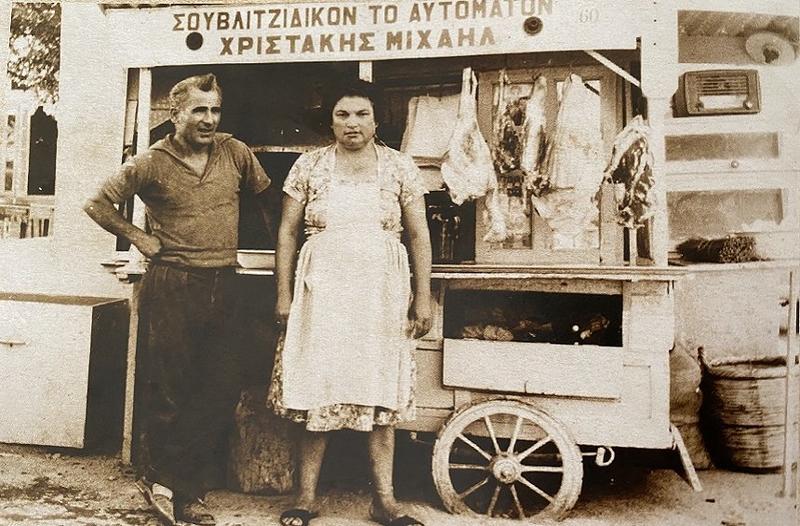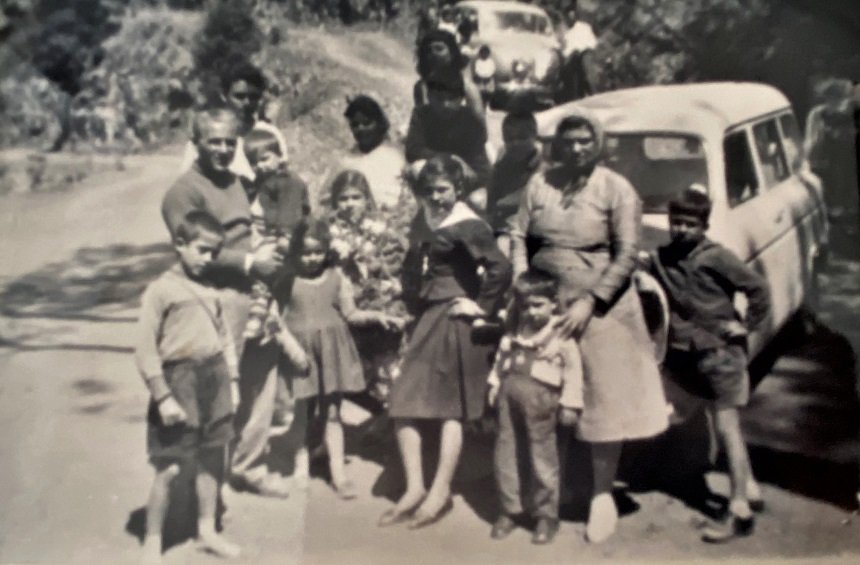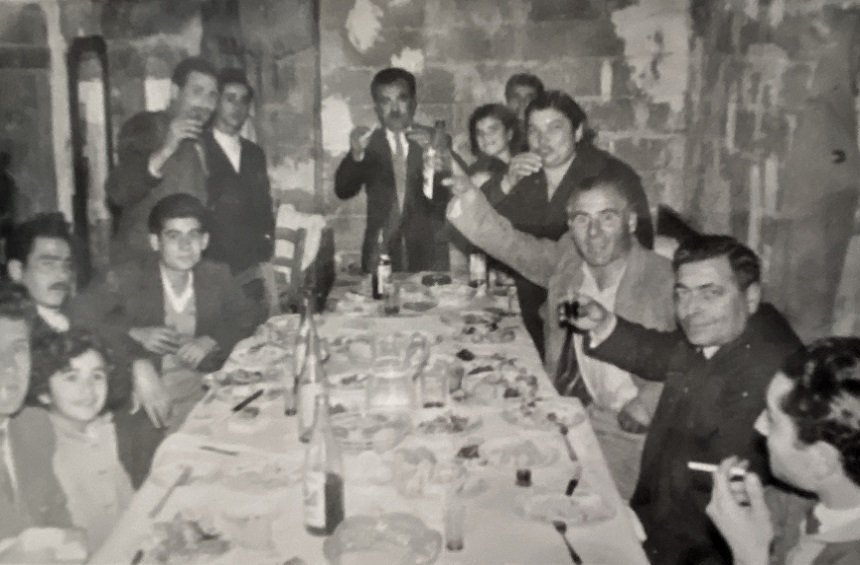
During the 1940s in Limassol, one of the city’s most recognizable images was a small food cart on Gladstonos Street, which operated as an outdoor grill. The cart was run by Christakis and Athanasia, a couple who supported their large family with it. Indeed, they operated the grill with such skill and agility, that their little shop was soon called ‘The Automato,’ or ‘The Automatic.’
Besides Christakis and Athanasia’s 8 children, the kebabs from ‘To Automoato’ raised whole generations of families in Limassol. People admired the speed with which the two grillers worked, but also enjoyed the deliciousness of the kebab and sieftalia pita even more. The children of the family grew up helping their parents, and they learned and loved the work. And so, the tradition that began with Christakis’ cart continues to this day with ‘To Automato,’ which has passed on to the third generation of the family.
“The tastiest souvlaki is that which is cut into small cubes of meat,” says Tasos, who grew up working his father’s food cart from the age of 8, as did his siblings. “Today, people want to see large chunks of souvlaki, which makes them feel like they are getting a larger portion size, but the best cooked pieces are the smaller ones. And because the meat was cut into smaller cubes back them, we would use 4 skewers in each pita. This means we grilled hundreds of skewers every day,” he adds.
Christakis worked any job he could find, from usher and announcer at the Rialto cinema, to traveling salesman selling refreshments to the construction workers at the Berengaria settlement.
Open-hearted Christakis and welcoming Athanasia soon gained a loyal following, and their business kept growing. In the 1960s, they opened their first proper shop, also on Gladstonos Street, near the Alambra kiosk.
The shop was also quite small, and there were often long lines outside the door.
Christakis and Athanasia were firm believers in the idea that there should be fun even in poverty. They would often take family trips on Sundays to the nearby Limassol countryside.

The trips usually took place on days when there was a festival going on in which they could participate.

Even if they didn’t have an excursion planned, Christakis would often invite friends to their home for food and drinks.
After Christakis’ early passing during the 70s, his children took over the shop. From 2000 onwards, his son Tasos, along with his wife Giorgoulla, took over the operation of ‘To Automaton.’ They had previously worked office jobs, but believed it was worth leaving them behind to take over the family business. As it turned out, their belief was warranted.
Of course, as Tasos admits, his real job was always the kebab stand. Giorgoulla had to adapt to a choice she made consciously but, despite the difficulties, she never regretted it. “When it was announced that ‘To Automato’ would reopen, people arrived in droves,” she recalls. The peoples’ response was their motivation to carry on. The family support, as well as the constant help of their children, helped them to make it.
Today, Tasos and Giorgoulla’s third child, Christos, who is named after his grandfather and founder of the shop, has taken over, using the artistry he learned from his parents as well as the knowledge he acquired from his studies in business administration. And so, after a history of 75 years in Limassol, ‘To Automato’ is carrying on the beloved tradition of making souvlaki and sieftalies that have won peoples’ hearts.
* NOTE: The tributes of the Project "History of Limassol" present information that has emerged from historical research thus far. Any new data is embedded into the tributes, once it has been confirmed.